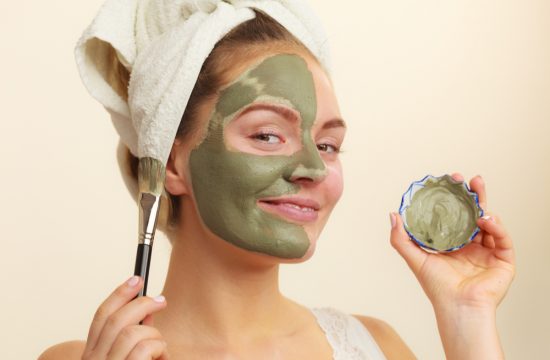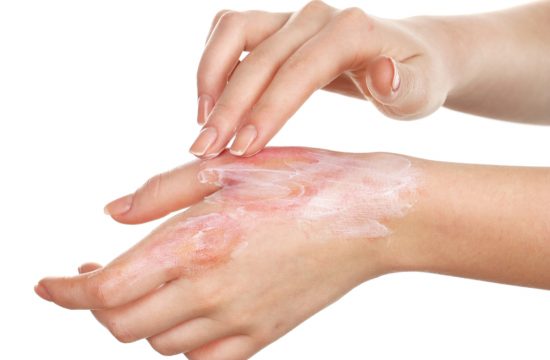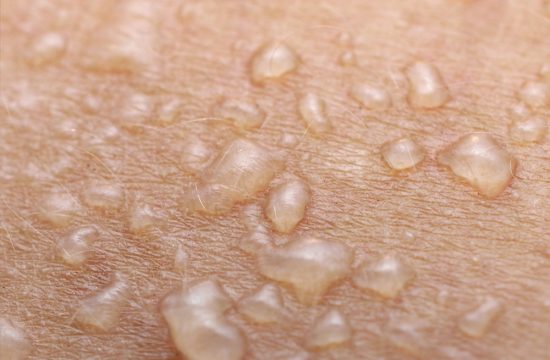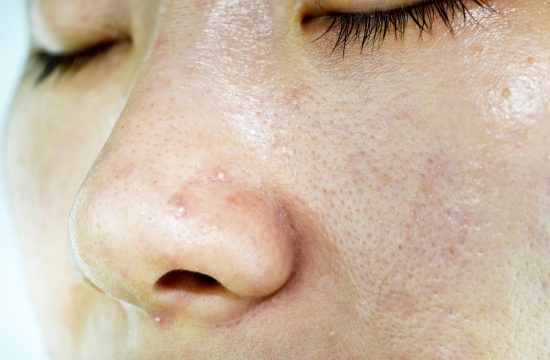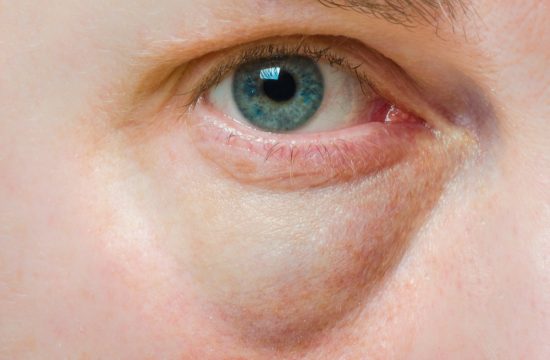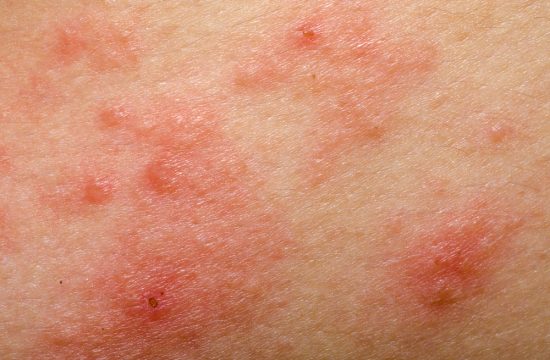“What good is the warmth of summer, without the cold of winter to give it sweetness”- John Steinbeck
Winter!! Cold, cozy nights, blankets and hot chocolate is what comes to your mind, but along with that there is home-coming of dry, itchy and cracked skin. Winter conditions are not pleasurable for all types of skin. Cold and dry winter weather draws the life out of silky and smooth skin every second of the day. Without instant care, dry skin can result in cracking and bleeding, and harsh season wind makes the problem shoddier.
To lessen the chapping, redness, itching and other skin problems due to dry winter conditions, the following practices promise to pacify and hydrate the skin and keep it healthy and lively:
1. Avoid Hot Water

Hot sprays and baths seems appealing in winter, but it is better to choose lukewarm water, predominantly for washing face or hands to avoid shedding out essential oils away from the skin which acts as an automated moisturizer for the skin
2. Moisturization is Vital

In winters, skin not only requires moisturization, but it is the key factor to retain moisture right after bath or wash. Smearing moisturizers directly on the wet skin helps to cover the dampness into the skin. It is handy to keep a bottle of moisturizer in the bathroom and use generously every time after bath.
3. Skin Protection

Gloves and scarves are best options to protect skin from cold winds, rain, and snow along with sunscreen as in winters Sun can be just as damaging as the sun in summers. It is always safe to apply a sunscreen to the exposed areas before stepping out during winter days.
4. Hydrate Yourself

It is generally observed that people have a habit of taking less of water during winters because we all prefer to have something hot to drink like, coffee, tea, soups etc. But you should not overlook that skin also desires to be hydrated all the time from the inside out. And, it needs regular consumption of 6-8 glasses of water daily in every season. A glass of lukewarm water with a squeeze of lemon can be very energizing for the body and hydrating for the skin at the same time.
5. Deep Moisturization
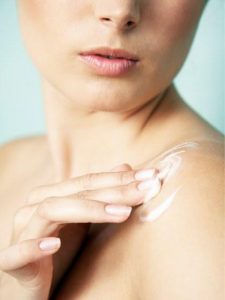
Some exposed areas of human body like hands, feet, elbows, and knees have a thin layer of skin and tend to drop moisture faster in comparison to other areas of the body. It is always advisable to invest in a good deep moisturization cream or balm which should be applied during night time and left on for the entire night. You may use cotton gloves and socks to retain the moisture until morning to avoid cracks and drying.
6. Exfoliation

We often forget to benefit the skin by scrubbing off the dead cells which accumulates on the skin in winters. A proper exfoliation is required for face, hands, feets as well as a gentle exfoliation on lips, followed by moisturization to perceive a smoother skin. Exfoliating body washes and scrubs should be used fortnightly in winters as well.
7. Foods for Happy Winter Skin

Consuming foods with high water content tends to hydrate skin from the inside out. Fruits like watermelon, cantaloupe, apples, oranges, kiwi, and vegetables like celery, tomatoes, cucumbers, zucchini, and carrots helps to retain moisture and water content in body. It is always important to intake foods rich in vitamin C and zinc as they support the healthy production of collagen and elastin.
8. Choose Your Right Cleanser

Skin cleansers sometimes can result in extreme drying of skin due to the presence of glycolic or salicylic acid in it. It is always worthwhile to replace the cleanser with a more hydrating variety that contains moisturizing components in winters. It is always advised to cover your skin after cleansing, as it may dehydrate the skin if the skin is exposed for more than 30 seconds. Applying a hydrating toner and moisturizer immediately after cleansing helps to seal in the moisture maintaining the suppleness of the skin.
9. Avoid Toxins Especially Irritants and Allergens
If you have any kind of skin disease like psoriasis or eczema, you should avoid allergens and irritants as it will worsen up your skin condition. Skin is usually more sensitive during winters so it is advisable to avoid heavy make-ups, cleansers, and moisturizers. It is always advisable to take off your makeup and nourish your face with a good moisturizer before retiring for bed. Additionally, try to wash your fabrics with mild detergents as the woolens also sometimes cause a skin rash.
USE DIY MASKS
DIY masks- The most trending thing these days. Homemade masks, to get a supple and hydrating skin, should be a part of your daily skincare regime. It can help you save a lot in your pocket and simultaneously keep you away from the risk of having any side effects of the skin care products. So, head to your kitchen and pick any natural moisturizing agent depending on your skin type. Use DIY mask twice a week for effective results.
Dry and blistering skin is a common grievance in the winters. Although there are many creams and moisturizers on the market to fight against dry skin, a maximum of them come with a large price label. Why rush for these products then? You should go in for various natural home remedies that are not only economical but also quite effective in nourishing and hydrating dry skin and maintaining its suppleness.
Some of the natural and effective home remedies for combating dry winter skin are as follows:
1. Olive Oil
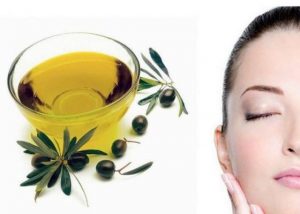
Olive oil comprises of numerous antioxidants and healthy fatty acids which are noble for the skin. It soothes and conditions dry skin all over the body.
Procedure:
a) Apply a little amount of olive oil on your hands, legs and other areas with dry skin and massage lightly about an hour before taking a bath. Apply a light moisturizer after a shower to retain the moisture in the skin.
b) Exfoliate your skin naturally by mixing two tablespoons of olive oil, four tablespoons of brown sugar, and one tablespoon of honey. Polish this homemade scrub on your dry skin using circular motions for few minutes and apply a light moisturizer later after a shower.
2. Milk Cream
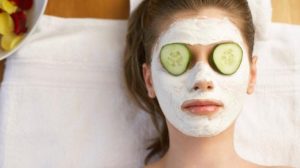
The most common and economical method of exfoliating dry skin. The gentle nature of milk cream also helps to preserve the skin’s mild pH levels. Milk cream acts as an excellent moisturizer.
Procedure:
a) Rub your hands and legs with the mixture of one teaspoon of milk, two teaspoons of milk cream and few drops of lemon juice, allow it to stay for a while and then take a shower. You may do it regularly instead of using soaps.
b) Make a thick paste by adding adequate milk cream to three to four tablespoons of gram flour (besan) and apply the paste on face, hands, and legs. Leave it on for 15 minutes and then rinse it off with lukewarm water. You may use this paste twice a week for a beautiful and glowing skin in winter.
3. Milk

Milk’s anti-inflammatory and soothing properties significantly helps getting rid of dry and itchy skin. Additionally, the lactic acid present in milk exfoliates dead skin cells and increases the skin’s capability to retain moisture.
Procedure:
a) Soak a washcloth in cold milk and put the cloth on your dry skin for five to seven minutes. Gently wash off the milk with another cloth soaked in lukewarm water. This way this natural moisturizer will remain on your skin. You may practice this every day.
b) Add a few drops of rose water to four tablespoons of milk. Rub this solution all over your body. Leave it on for 10 minutes and wash your body with cold water. It will leave your skin moisturized and fragrant.
4. Honey

Honey is ranked as one of the top natural moisturizers which is overloaded with antioxidants and antimicrobial properties, and help retain moisture to make skin extra soft and smooth. Honey also has many vital vitamins and minerals that help improves skin health and quality.
Procedure:
a) To relish well-moisturized skin scrub honey all over body and allow it to stay for five to 10 minutes before taking a bath or shower. It helps in toning the skin.
5. Curd
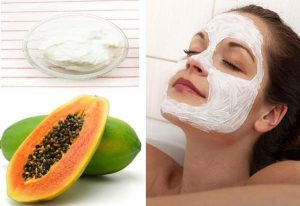
Curd being an excellent skin-hydrating agent, its antioxidant and anti-inflammatory properties help soothe dry and itchy skin. Plus, its lactic acid content helps get rid of germs or bacteria which causes dryness or itchiness.
Procedure:
a) Apply fresh curd on your hands, face, and legs by gently massaging it into your skin. Leave it on for around 10 minutes and then take a shower. The mild exfoliating act of curd will eradicate dry skin and leave skin refreshed and hydrated.
b) Make a mixture of half cup of curd with three tablespoons of mashed or blended papaya. Stir it in a blender with few drops each of honey and lemon juice. Smear it on the skin and leave it on for 10 minutes. Then wash it off with cold water. It is advisable to do this method once a week.
6. Coconut Oil
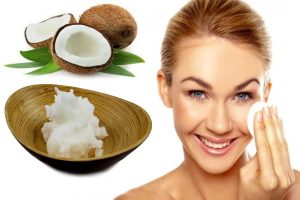
Coconut oil is truly a good friend of skin. It treats dry skin as it has high amounts of fatty acids that make up for any loss of moisture incurred.
Procedure:
a) Profusely smear warm coconut oil all over the body before sleeping every night. Repeat this daily to mark skin soft and smooth.
b) Spread on a little coconut oil on dry skin after your bath daily. Coconut oil is more readily absorbed when the skin is warm and elastic after a shower. Repeat daily for smoother skin.
7. Oatmeal
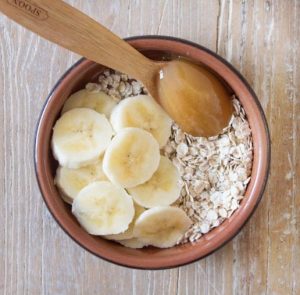
Oatmeal is not only healthy to eat but is also healthy for your skin. The high protein content in oatmeal leaves a defensive barrier on the skin, which avoids water loss and helps maintain moisture. Adding on to it, it has anti-inflammatory and antioxidant properties that are good for the complete health of the skin.
Procedure:
a) Mix one cup of plain oatmeal into bathtub/bucket filled with warm water. Add a few drops of lavender oil or any essential body oil. Soak in the bath water for 15 to 30 minutes. Enjoy this soothing bath once a week.
b) Make a DIY face mask by mixing one mashed ripe banana with one cup of grounded oatmeal with a little bit of lukewarm milk. Smear this smooth mixture on dry skin and leave it on for 10 to 15 minutes. Wash it off with lukewarm water.
8. Almond Oil
Almond is in itself an excellent source of vitamin E and hence its oil is considered to be the best for soothing and lubricating the dry skin. Its antioxidant property is also beneficial for skin’s health. Being non-greasy in nature, it is easily immersed in the skin.
Procedure:
a) Massage your body gently with the warm almond oil half an hour before taking a shower. After shower apply some light moisturizer when skin is still wet.
b) To enjoy healthier skin with sound sleep it is advised to take a glass of warm milk mixed with one teaspoon of almond oil before going to bed.
Note: People allergic to almonds must not use the almond oil remedies.
9. Aloe Vera
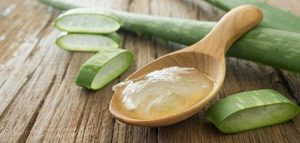
Aloe Vera has gained the loudest applaud for being the best, cheapest and easiest way of dealing with skin problems. With its calming, antiseptic and antifungal properties, it helps combat dry, irritated skin and prevents peeling of skin.
Procedure: Cut open a fresh aloe vera leaf and remove the entire gel out of it. Apply the gel to the dry skin. Let it sit for 10 to 15 minutes then rinse it off with lukewarm water. This simple mixture will moisturize your skin and form a defensive layer which will keep skin free from impurities.
To summarise it up, treat your body with natural ingredients that are readily available at home as they have incredible properties and are your skin’s best friend.
803 total views, 1 views today

